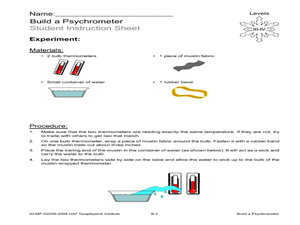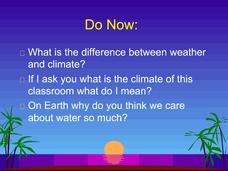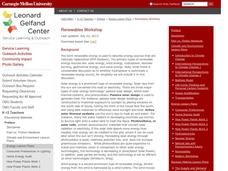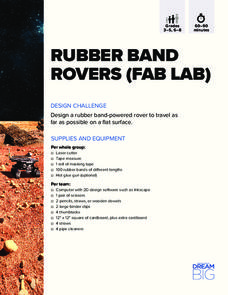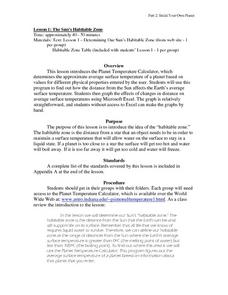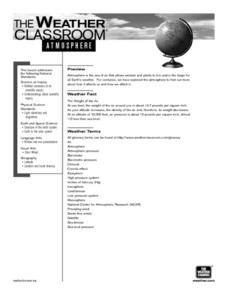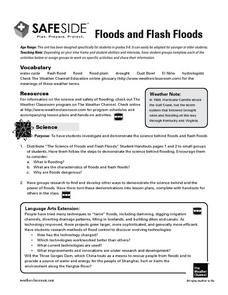Curated OER
Build a Psychrometer
Students understand that a psychrometer is a weather instrument used to detect humidity. In this psychrometer lesson, students build a psychrometer. Students use their psychrometers to measure humidity activity.
Curated OER
Hands on Biome-Building
Students explore Earth science by participating in an environment activity. For this biome lesson, students discuss the importance of a healthy ecology in order to sustain life, both animal and plant. Students utilize a cardboard or wood...
Curated OER
Exploring Meteorite Mysteries: Building Blocks of Planets
Students simulate the formation of chondrites and asteroids. For this astronomy lesson, students demonstrate accretion using balloons and static electricity. They compare and contrast their models to the actual process of chondrites and...
Teach Engineering
Earthquakes Living Lab: Designing for Disaster
Build and design to rock and roll. Pairs research building design in earthquake areas and use computer simulations to see the effects of earthquakes on buildings,. They then sketch and explain a building design that would withstand a...
Institute of Electrical and Electronics Engineers
Solar Structures
It's time to soak up the sun! Youngsters read about active and passive solar heating systems, then they collaborate to create a miniature solar-heated building. Provide a variety of materials for them to incorporate and watch their...
PHET
Soda Bottle Magnetometer
Introduce learners to set of complete instructions that describe how to build a magnetometer that works just like the ones professional photographers use to predict auroras. The diagrams are wonderfully descriptive, and the written...
Space Awareness
Meet Our Neighbors: Sun
The sun isn't just a ball of yellow! Young scientists learn about the features of the sun using a hands-on modeling activity. They build models of the sun using common household items to represent sunspots, solar prominence, and the...
Port Jefferson School District
Water and Climate
Dive into a lesson on the hydrosphere with this Powerpoint presentation. Building on prior knowledge of the water cycle, young scientists learn what happens to water after it falls as precipitation and explore the different factors...
Newspaper Association of America
Cereal Bowl Science and Other Investigations with the Newspaper
What do cereal, fog, and space shuttles have to do with newspapers? A collection of science investigations encourage critical thinking using connections to the various parts of the newspaper. Activities range from building origami seed...
Howard Hughes Medical Institute
What van Leeuwenhoek Saw
When van Leeuwenhoek saw cells and single-celled organisms for the first time, he knew these small things were a big deal! Share his discoveries with young learners through a narrated video, model-building activity, and scale study....
NOAA
Oceans of Energy
Are the earth's oceans really just giant batteries, waiting for their energy to be harnessed? Middle school mechanical engineers will be shocked by the amazing amount of energy that forms around them after diving into part four of a...
American Museum of Natural History
What's This?: Early Humans
Early humans crafted shelters out of whatever materials they could find. A one-question quiz asks learners to identify the type of bones used to construct the hut pictured in a display.
Carnegie Mellon University
Renewables Workshop
Youngsters examine resource maps to find out which states are using solar and wind power and discuss as a class various other renewable energy sources. They use a provided data table to record pros and cons to each technology, build and...
DiscoverE
An Egg-Citing Ride
Wheeeee! Young thrill seekers build a bungee jump—not for themselves, though, but for an egg. The egg must fall from a height of five feet and rebound within two inches of the ground or floor.
Institute of Electrical and Electronics Engineers
Shake it up with Seismographs!
Shake things up in your STEM or earth science classroom when you have small groups construct their own seismographs. A reading assignment on the history of seismographs, the Richter scale, and current technology sets the stage for the...
NASA
Tools of the Trade
Did you know every state in the U.S. has at least one observatory? During the lesson, scholars research the cost of building and maintaining an observatory. They must present their information in a proposal to build a new observatory,...
DiscoverE
Rubber Band Rovers
Get your learners interested in space exploration. Groups design space rovers using design software and then build prototypes of their designs. The farther the rovers can travel, the better. The catch? The rovers must be powered by...
EduGAINs
Go Eco! Ecosystems
How is a movie theater like a desert biome? Compare systems to ecosystems with a set of activities that focuses on accessing multiple intelligences and building upon knowledge. As learners discuss the ways elements of an ecosystem depend...
LABScI
Taxonomy: Who is in My family?
Find similarities in seemingly unlike organisms. The second instructional activity in a series of 12 builds the concept of a taxonomy and explores the use of a dichotomous key. Learners begin in part one by attempting to group a set of...
Curated OER
Creating with Clay
Learners are introduced to the Art Museum's Ahambra Vase. They explore the difference between throwing on the pottery wheel and hand building. Students create a functional vessel using two of the three hand-building techniques. They find...
Curated OER
The Sun's habitable Zone
Students explore the average surface temperature of planets. They use the Planet Temperature Calculator to find the average temperature. Students explore how the distance from the sun affects the Earth's average surface temperature. They...
Curated OER
The Weather Classroom - Atmosphere
Meteorology learners explore the weight of air, layers of the atmosphere, and air pressure action through a series of discussions, demonstrations, and hands-on group activities. Enough discussion prompts, background information, student...
Science Matters
Volcano Models
More than 80 percent of the earth's surface originated from volcanoes. The 16th lesson in a 20-part series introduces the shape and development of volcanoes. It begins with a demonstration using a balloon and flour to illustrate the...
Curated OER
Floods and Flash Floods
Junior geologists, hydrologists, or meteorologists simulate what happens during the flooding of a river and demonstrate factors that contribute to flash flooding. This outstanding resource provides a vocabulary list, online resources,...


